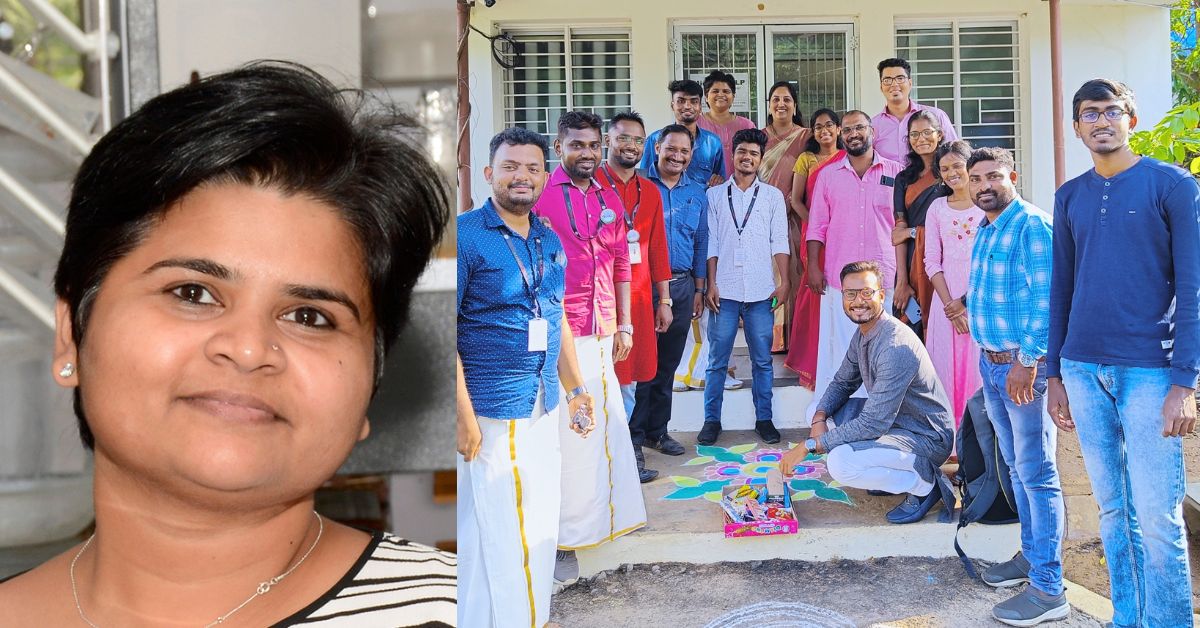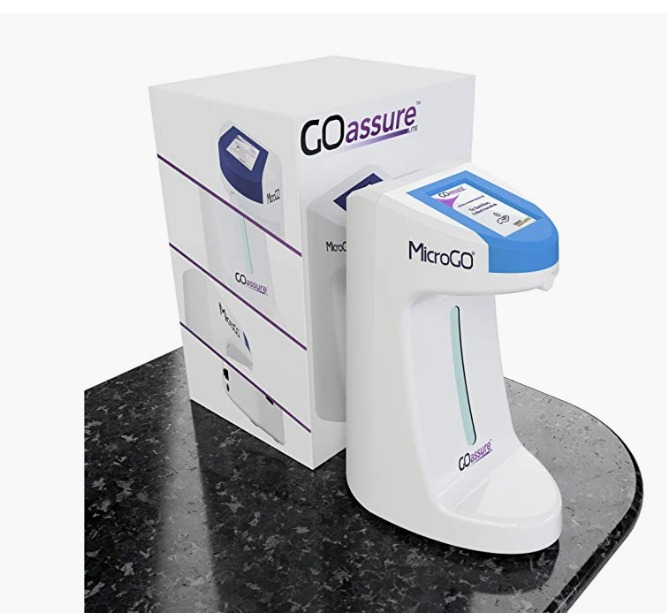Ex-BARC Scientist’s Startup Designs Sustainable Hygiene Products; Gets Rs 6 Cr Funding
MicroGO, founded by Dr Rachna Dave, provides sustainable and automated hand-hygiene water-saving compliance solutions for hospitals and hotels. Here’s how a scientist turned into an entrepreneur.

In a report by The Lancet that spoke about infections associated with health care in India, one of the barriers to preventing infection is the inappropriate use of sanitary and hygiene measures, especially at secondary or district-level health facilities in public and private sectors.
If the pandemic has taught us anything, it is the importance of hygiene measures, be it at home, hospitals or hotels.
Though many probably realised the importance of hand hygiene only in 2020, there was one scientist who started research on best hand hygiene practices in 2016.
Dr Rachna Dave quit a flourishing career at Bhabha Atomic Research Centre (BARC) to launch her own company called MicroGO — which provides sustainable hygiene and infection control solutions.
It was while she was working on a few projects at BARC that Rachna thought of their real-world applications and branched out on her own.

“We were working on solving a problem called biofouling (accumulation of bacteria and microorganisms) on water pipes. I researched and developed two technologies for water disinfection systems. After working on this for almost five years, I wanted to solve real-world problems and took the plunge,” Rachna tells The Better India.
Around the same time, the world was talking about One Health, which is an integrated approach that aims to optimise the health of humans, animals and ecosystems.
“With this chatter about One Health, I realised that infection control was very important. One of the first points it addressed is hand hygiene because hands are the hotspots for infection transfer. Therefore, we started R&D for a product that would use technology for hand hygiene and water hygiene,” says the 41-year-old.
After researching for almost four years, MicroGo piloted their first product — GOassure™ MAX, to automate hand hygiene, save water and help in compliance.
Most of their products are designed for hospitals and the food industry. Automated hand-hygiene compliance solutions, raw water treatment, wastewater treatment, surface cleaners, and fruit and vegetable treatment are some of them.
Providing sustainable hand-hygiene solutions

Dr Rachna says that in hospitals and hotels, hand hygiene is very important. She adds that as much as 60 per cent of hospital-acquired infections come from improper hand hygiene measures.
“There are measures and rules in place about how long a person must perform hand hygiene. However, there is no way to check if a person is following the protocol. So, everything is automated in our products. The manager can monitor the activities wherever they are, thanks to our tech,” says the entrepreneur.
She also says that their solutions are sustainable, both financially and environmentally. According to her, the products help reduce hand-hygiene expenses by 60 per cent and save water consumption by 50 per cent.
“On average, a person uses 2.25 litres of water each time for hand disinfection. After that, they use napkins to clean their hands. GOassure™ MAX does the same job using just 0.023 litres of water, saving almost 99% water per person. We have also included an air dryer which saves paper,” adds the scientist.
Their clients include the Airports Authority of India, the Indian Army, IHCL (Taj and Vivanta), IRCTC, Bigbasket, and Apollo Hospitals among others.
Dr Rachna says, “One of our clients was spending Rs 12 lakh a year in their facility for hand hygiene. After using our product, they are spending Rs 3.4 lakh, saving more than Rs 8.6 lakh. When the pandemic hit, we started working with the Airports Authority of India in Chennai. Today, we are present in 16-17 airports across the country. We also work with IRCTC’s base kitchens providing solutions to combat infection.”
While the company was initially bootstrapped with Rachna’s savings of about Rs 15 lakh, they have raised a pre-Series A funding of Rs 6 crore from angel investors. If you found our stories insightful, informative, or even just enjoyable, we invite you to consider making a voluntary payment to support the work we do at The Better India. Your contribution helps us continue producing quality content that educates, inspires, and drives positive change. Choose one of the payment options below for your contribution- By paying for the stories you value, you directly contribute to sustaining our efforts focused on making a difference in the world. Together, let’s ensure that impactful stories continue to be told and shared, enriching lives and communities alike. Thank you for your support. Here are some frequently asked questions you might find helpful to know why you are contributing?

They now want to work with farmers to help with post-harvest management, she says.
Edited by Pranita Bhat
Sources
The Lancet
This story made me
-
97
-
121
-
89
-
167













